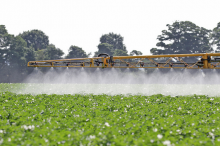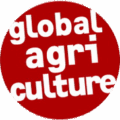
The European Union has postponed a decision on relicensing glyphosate after a dispute over whether the controversial weedkiller ingredient causes cancer. A vote on authorising glyphosate for use in the EU for another 15 years by a standing committee for the European Commission was put off on Tuesday due to opposition from a number of member states. Sweden, France, Italy and the Netherlands announced they would be voting against the relicensing of glyphosate. Germany planned to abstain from any vote because the country’s environment and agriculture ministries could not agree on a common position. According to news agency Reuters, Commission sources said the meeting stopped short of a vote. “We would like a solid majority to take a decision on this kind of issue and some member states had sceptical observations that we will have to answer, so it [a postponement] was the wise thing to do,” a commission spokesperson was cited by The Guardian. The European Commission proposal was to extend the authorisation of glyphosate until 2031. Glyphosate is the most widely used weedkiller worldwide and the main ingredient in Monsanto’s Roundup brand of herbicides. In March 2014, the International Agency for Research on Cancer (IARC), an arm of the World Health Organisation, classified glyphosate as “probably carcinogenic to humans”. However, the European Food Safety Authority (EFSA), which advises EU policymakers, concluded that glyphosate is “unlikely to pose a carcinogenic hazard to humans”. Martin Häusling, agriculture and public health spokesperson of The Greens, welcomed the decision to postpone the vote: “The growing opposition among EU governments to reapproving glyphosate for use in the EU is encouraging. Given the serious health and environmental concerns and conflicting scientific advice regarding glyphosate, as well as the public opposition, it is welcome that EU governments are belatedly waking up to the problem.” He said that as long as there are serious health concerns and conflicting scientific opinions, the Commission should be respecting its duty to apply the precautionary principle and stop the use of this highly controversial substance. This opinion is shared by Greenpeace EU food policy director Franziska Achterberg: “Rushing to grant a new licence now, without waiting for an evaluation by Europe’s chemical agency, would be like skydiving without checking your equipment first,” she said. “As long as there is conflicting scientific advice, glyphosate should not be approved for use in the EU. And countries would be better advised to do without it.” (ab)
